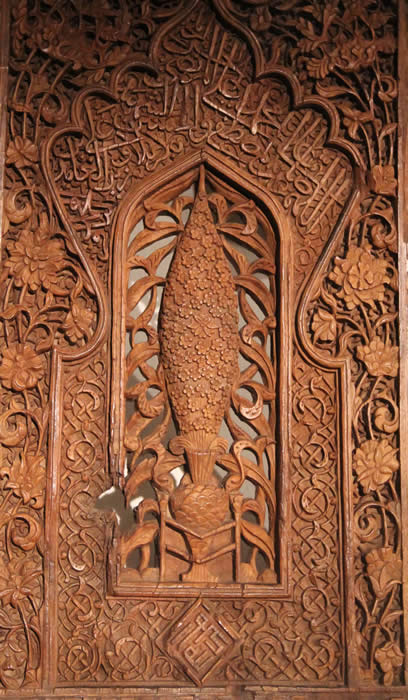
Prostration and knowledge
"Everything which prostrates itself bears witness to its own root from which it is absent by being a branch... the spirit prostrates itself to the universal spirit from which it has emerged. The inmost consciousness prostrates itself to its Lord by means of whom it has achieved its level...
All roots are unseen. Do you not see how they become manifest in trees? The roots of trees are unseen, for the act of bringing to be is unseen. no one witnesses the embryo coming to be in the womb of its mother, so it is unseen. Some animals come to be inside an egg; when the animal is perfected, the egg breaks. The root of the existence of the things is the Real, and He is unseen by them.
The angels prostrate themselves to the level of knowledge. Their prostration is their words, "we have no knowledge", so they are ignorant...
When the heart prostrates itself, it never rises up, since its prostration is to the divine names —not to the Essence — for the names have made it a "heart"; the names make it fluctuate from state to state in this world and the next. That is why it is called a "heart."
When the Real discloses Himself to the heart as the cause of fluctuation, it sees itself in the grasp of Him who makes it fluctuate. And He is the divine names, from which no created thing is separate. The names rule over the creatures. The heart of him who witnesses them prostrates itself, but the heart of him who does not witness them does not prostrate itself; he is the one who makes claims by saying "I." On the day of resurrection the reckoning and the questioning will be directed toward the person who has such an attribute, as also the punishment, if he is punished. He whose heart has prostrated itself has no claims, so he will have no reckoning, questioning, or punishment.
Hence there is no state more noble than the state of prostration, since it is the state of attainment to the knowledge of the roots. And there is no attribute more noble than knowledge, since it yields felicity in the two worlds and ease in the two stations."
Excerpts are from Ibn Arabi's Futuhat al Makkiyya, II, 101.29, as translated by William Chittick in The Sufi Path of Knowledge, State University of New York press, 1989, pages 152 – 153